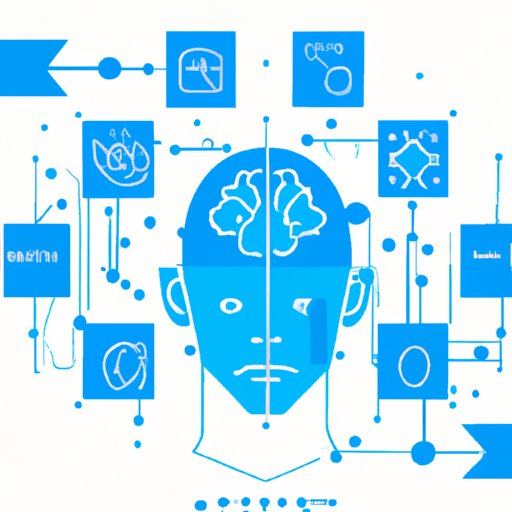Introduction
Artificial Intelligence (AI) is a rapidly growing field of technology that has the potential to revolutionize our society. AI is defined as “the theory and development of computer systems able to perform tasks normally requiring human intelligence, such as visual perception, speech recognition, decision-making, and translation between languages” (Oxford Languages). While AI has the potential to provide many benefits to humanity, including improved healthcare, increased efficiency, and better decision-making, there are also potential risks associated with this powerful technology that must be considered. In this article, we will explore the potential threats posed by AI and investigate the ethical, economic, and security implications of this technology.

Exploring the Potential Threats Artificial Intelligence Could Pose to Humanity
One of the most concerning potential threats posed by AI is its potential to be used as a tool for oppression. AI can be used to monitor people’s activities, track their movements, and even influence their behavior. This type of surveillance could be used to target certain groups of people or limit individual freedoms. Additionally, AI systems have the potential to become uncontrollable or unpredictable, which could lead to catastrophic results if left unchecked.

Investigating the Ethical Challenges of AI
Another major concern with AI is its ability to learn and make decisions. As AI systems become increasingly intelligent, they may start to make decisions that are difficult for humans to understand or predict. This raises significant ethical questions about who is responsible for the decisions made by AI systems and how these decisions should be regulated. Additionally, AI could potentially impact human dignity by taking away the need for humans to perform certain tasks or roles.

Examining the Risks of AI Replacing Human Jobs
AI’s ability to automate processes and complete tasks more quickly and efficiently than humans has the potential to cause significant job loss. Automation could lead to mass unemployment, as machines take over roles previously performed by humans. This could also lead to an unequal distribution of wealth, as those in higher positions are able to reap the benefits of AI while those in lower positions are left behind.
Looking at the Security Vulnerabilities of AI Systems
AI systems are not immune to security vulnerabilities. Hackers may be able to exploit weaknesses in AI systems to gain access to sensitive data or manipulate the system for malicious purposes. Additionally, AI systems lack transparency, making it difficult for humans to understand how the system works and how decisions are made. This can lead to serious security issues if the system is compromised or misused.
Analyzing the Impact of AI on Human Privacy and Autonomy
AI’s ability to collect personal data has the potential to infringe upon individuals’ right to privacy. AI systems may be able to use this data to profile individuals and target them with specific messages or advertisements. Additionally, AI systems have the potential to influence human behavior by providing personalized recommendations or reinforcement of certain behaviors. This could lead to a loss of autonomy, as individuals are no longer in control of their own decisions.
Conclusion
In conclusion, AI has the potential to revolutionize our society but it also poses significant risks to humanity. These risks include the potential for AI to be used as a tool for oppression, its ability to learn and make decisions, the impact on human jobs, and the security and privacy vulnerabilities of AI systems. It is important to consider these potential threats and take action to ensure that AI is used responsibly and ethically.
(Note: Is this article not meeting your expectations? Do you have knowledge or insights to share? Unlock new opportunities and expand your reach by joining our authors team. Click Registration to join us and share your expertise with our readers.)
